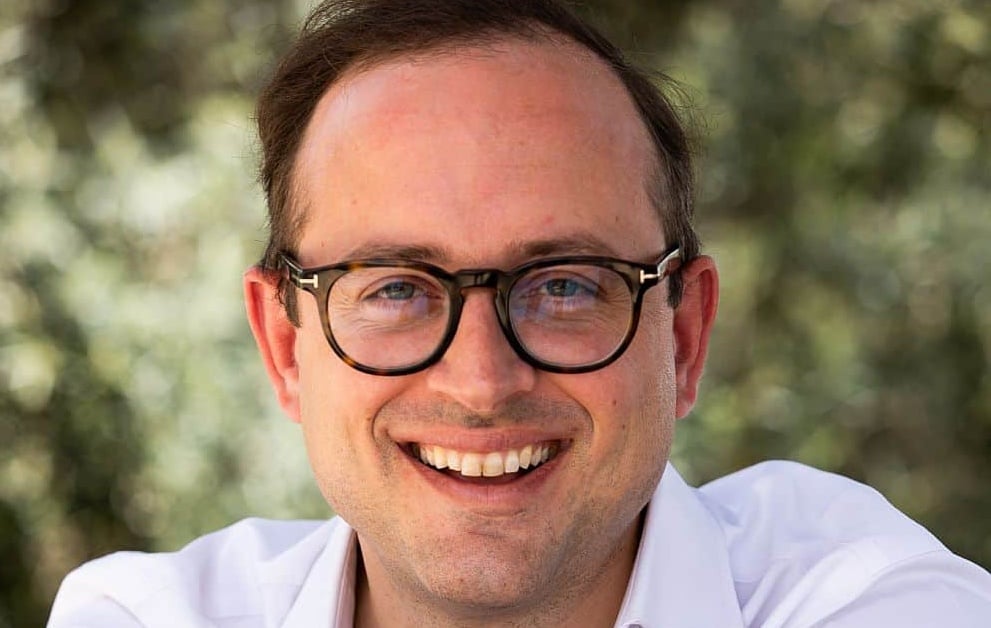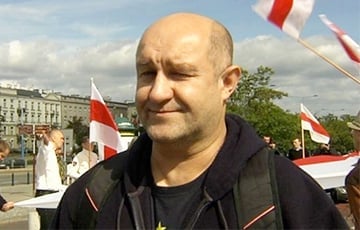Expert: Germany Has Real Leader Ahead Of Elections
25- 13.12.2024, 14:18
- 22,162

Big changes are coming in a key European country.
Snap elections to the German parliament are scheduled for February 23, 2025. What is the current political situation ahead of the Bundestag elections? What might the new parliament look like? Charter97.org spoke with Baron Julius von Freytag-Loringhoven, head of the Friedrich Naumann Foundation office in Vilnius:
— Right now, everything indicates that the Social Democrats (Social Democratic Party of Germany) and Free Democrats (Free Democratic Party), who are in the government, will have weak results. The Free Democrats may not be in the new parliament, while the Social Democrats will have almost 10% less. The real leader today is Friedrich Merz from the Christian Democrats, and the CDU/CSU will definitely be part of the new government. A possible partner for the Christian Democrats could be the Greens. This is a special party that is currently in the government. There are expectations that they could remain as the second partner in the new government.
— The candidate for German Chancellor from the CDU/CSU bloc, Friedrich Merz, recently visited Kyiv. He is a supporter of the transfer of long-range TAURUS missiles to Kyiv, and said that Putin should be given an ultimatum. How will Germany's policy change if he becomes Federal Chancellor?
— We cannot say for sure. The Christian Democrats have different politicians. There are strong voices against Putin's aggression — several conservative politicians, but there is also a “young guard”. We should not forget that some politicians from the Christian Democrats also had the closest relations with Putin.
I hope that Merz will remain on the path of strong support for Ukraine. However, we should not forget that Merz is the leader of the opposition. He harshly criticizes Chancellor Olaf Scholz for being too weak. But we will only learn about Merz's policies when he becomes Chancellor.
— European media often write about the danger of parties like Alternative for Germany and the Sahra Wagenknecht Alliance. Could you explain to our readers from Belarus what kind of political forces these are?
— This is very interesting, since these forces represent part of the far-right and far-left in our system. The far-left from the Sahra Wagenknecht Alliance believe that all progressivism, gender policy, harms the left, that the left should be more concerned with ordinary workers, therefore more nationalism and efforts in the social sphere are needed. In a sense, this is National Socialism.
Alternative for Germany is a classic right-wing populism, which unites, among other things, people with far-right views who sympathize with Hitler and oppose the democratic system. AfD is supported by people who want changes from the point of view of far-right populist positions.
Both of these parties consider Putin and imperial Russia their friends, because they like a strong leader, they like the Kremlin's rhetoric against the left-liberal mainstream in Europe. The ultra-leftists from the Sahra Wagenknecht Alliance are attracted by the vision of Russia as the successor to the Soviet Union, an adversary of America. Therefore, the ideology of Russia suits them.
Secondly, we see clear signs that there is direct support from these parties to Russia. From Russian disinformation sources, we know that they support both of these parties. We know that there are very suspicious moments indicating financial assistance. When the discussion about the new government began, the Sahra Wagenknecht Alliance outlined its position that the most important thing for them is not the competence of the leaders, but “the end of the war in Ukraine” and “stopping aid to Kyiv”. It is clear that there are close ideological relations there, and most likely financial ones. This is very similar to the USSR's policy during the Cold War, when Moscow financed left-wing parties in the GDR.
— The memoirs of former Federal Chancellor Angela Merkel were recently published. It is no secret that in Europe, especially in the eastern part, she is often blamed for the fact that a full-scale war began in Ukraine, and is also reproached for the construction of Nord Stream 2. What do they think about Chancellor Merkel's legacy in Germany today?
— Of course, she wrote her memoirs also because in Germany they talk badly about her legacy. When Merkel was in power, she was a heroine of Europe. The Times and The Economist wrote about what a wonderful leader she was. Today, we understand that many of Merkel's reforms were wrong. In Germany, the issue of economic problems is acute. Many believe that Merkel is to blame for them. Many blame her for the Minsk Agreements and the construction of Nord Stream 2.
It is fair to say that Merkel believes that in 2014, the Germans were not ready for sanctions, as were many countries in Europe. But she united the Europeans in accepting them, even if they were symbolic. In a sense, she is the builder of this sanctions regime. So she is not only the chancellor who supported Nord Stream 2, but also the politician who organized the sanctions against Putin.
— Judging by Trump's statements, the US role in European security will decrease. The new White House administration will focus more on domestic issues. Europe will have to be more active. Is Germany, the leading EU country, ready for a more decisive role?
— I think that the countries of Europe and Germany are not ready for the US to stop participating in the security architecture in this region. We understand that the biggest support for Ukraine is provided by America, the largest part of NATO is the US. We see that Europe produces fewer weapons in a year than Russia does in two months. It is clear that the EU and Germany are not ready to be responsible actors in their own security today.
But, of course, everyone is talking about the need for greater responsibility for it. I think that the first steps have already been taken in Germany. After 2022, there is an understanding that the war in Ukraine affects Germany's security. But this is still very far from being independent actors and leaders in European security.
— Of course, Belarusians are interested in whether they should expect changes in Germany's attitude toward the Lukashenka regime when the country's government changes. What should Belarusians expect?
— I don't think there will be a different course from the new government, because even now the German Foreign Ministry understands that political prisoners and their release must be supported, sanctions cannot be eased due to the regime's participation in the war in Ukraine, but there is an understanding that Belarus should not become part of Russia.
Perhaps there is some contradiction in this position, but in our Foreign Ministry and among the Christian Democrats with whom I spoke, there is an understanding that simple solutions to the issue of Belarus just do not exist.











